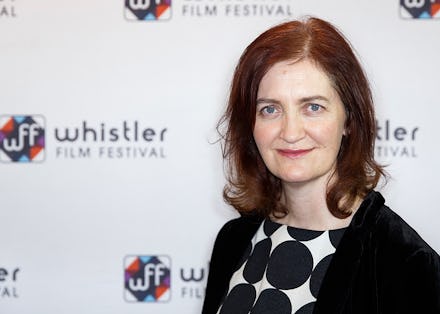The Oscars Nominated More Women Writers This Year — But Fewer Movies Directed by Them

The Oscar nominations announced earlier this morning by Academy president Cheryl Boone Isaacs, John Krasinski, Ang Lee and Guillermo del Toro proved it was a good year for films with mostly male ensembles (Spotlight, The Big Short, The Revenant). As usual, however, it was mostly a mixed bag for those hoping for some broad support for female filmmakers. Only one film nominated for best picture this year was written by a woman; perhaps unsurprisingly, none were directed by a female filmmaker.
Thankfully, the original and adapted screenplay categories show some steps in the right direction. Four women are in the running for the gold, hopefully signaling that Hollywood is slowly but surely paying more attention to female-driven stories.
Four female screenwriters were nominated in the writing categories: Emma Donoghue (transferring her own novel Room to the big screen), Phyllis Nagy (adapting Patricia Highsmith's The Price of Salt into the film Carol), Andrea Berloff (sharing writing credits on box office hit Straight Outta Compton) and Meg LeFauve (as part of the Pixar team responsible for Inside Out). This is the highest number since 2007, when four other first-time female nominees cracked the field.
That year, Diablo Cody's script for Juno took the award for best original screenplay. In fact, Cody's win is the last time a female screenwriter has taken to the podium, only the eighth woman to do so in a century in either category. That films like Suffragette (written by Abi Morgan and directed by Sarah Gavron) and Trainwreck (written by Amy Schumer) were also circling the awards conversation shows how strong 2015 was for female writers — which is much needed after the eight-year drought since Cody's win.
While many may cheer on this year's crop of nominees, there's no denying that such a celebration belies a wider systemic problem. As a recent report on female employment in the film industry showed, "Women accounted for 11% of writers working on the top 250 films of 2014." That represented a decrease of 2 percentage points from 1998, showing that the industry has made little progress. Of the films surveyed for 2014, 79% had no female writers.
Conversations about gender equality in the film industry are ubiquitous. Yet looking at this year's best picture lineup, it seems the results of those conversations are still mixed. Three of the eight films have a female lead — higher than the industry average of 21%. It's a slight improvement over last year's roster, where only one film had a significant female role and where all films were written by men. But these are low bars.
Once you step back and look at the numbers for the past few years, one hopes this year's nominations show a changing course rather than an anomalous spike. Last year, no female screenwriters were nominated at all. Many expected Gillian Flynn to be recognized for her film adaptation of her best-selling novel Gone Girl — a fate that could have befallen Donoghue this year. For 2013, Julie Delpy (for Before Midnight) and Melisa Wallack (for Dallas Buyers Club) were the sole women in the mix. The year prior, 2012, saw only one female screenwriter nominated: Lucy Alibar for Beasts of the Southern Wild.
Looking at the history of the category, this year's great showing is less unexpected than when just looking at the past few years. The writers branch at the Academy have often championed not only female-scripted films, once awarding Oscars to films like Thelma and Louise, The Piano, Lost in Translation and Sense and Sensibility, but also female-driven stories that found little support elsewhere in the Academy, nominating films like Bridesmaids, Away From Her, My Big Fat Greek Wedding and Fried Green Tomatoes.
Yet since 2005, more than 130 screenwriters have been nominated for an Oscar. Of those, only 18 were women. Does this year represent a return to form?
By saying more female films should be nominated, one is inviting the comeback of "Well, if they were good they'd be nominated." In that sense, it's a circular argument — one that obscures and refuses to address issues of access, distribution and, more importantly, the cultural biases that govern what we deem "good quality."
Thankfully, Hollywood may yet be listening and slowly diversifying. One hopes the strong class of 2015 screenplays, not to mention a surprising showing for films that grapple with complex issues about sexual abuse (Room, Mad Max: Fury Road), same-sex desire (Carol) and gender identity (The Danish Girl), point to an ever-changing conversation about whose stories deserve to be told and celebrated. This year is a great step; 2016 needs to keep it up.